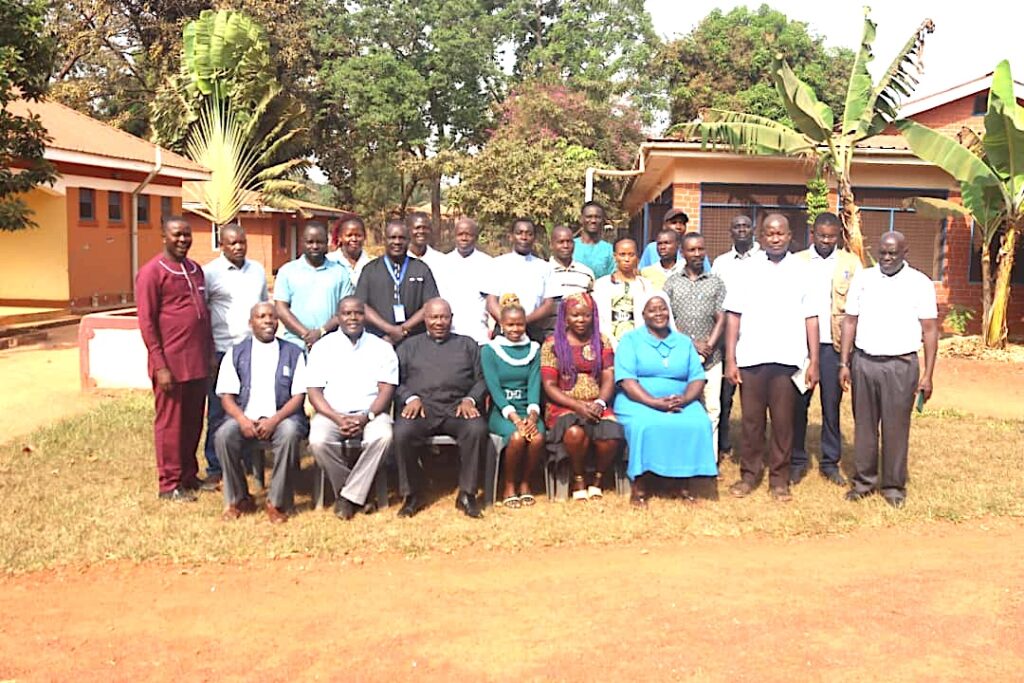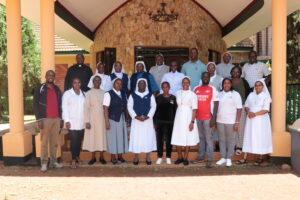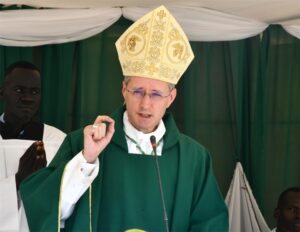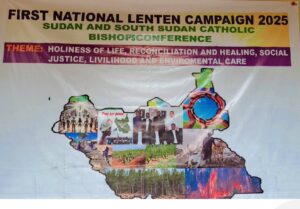SOUTH SUDAN: Tombura Yambio Justice And Peace Committee Recommends Action Plans on Civic, Democratic Participation

Participants during the training
Baraka John
The Catholic Diocese of Tombura-Yambio, South Sudan, Justice and Peace Committee has concluded a two-day training session aimed at enhancing civic education and engagement for peace and democratic participation with plans on civic democratic participation.
The training, which took place from January 15th to 16th, recommended six key action plans to foster greater civil and Church involvement in South Sudan’s democratic processes.
The action plans proposed include raising awareness of citizens’ roles in governance, disseminating the 2018 peace agreement to grassroots communities, educating the public about the electoral process, and promoting the Church’s social teaching through radio programs and seminars.
The committee also emphasized the importance of gaining a deeper understanding of federal governance structures.
The training was organized by the National Justice and Peace Coordinator Office for Sudan/South Sudan Catholic Bishops’ Conference, through the Committee for the Catholic organization for peace and Development (CODEP-CDTY), with funding from the Association of Member Episcopal Conferences in Eastern Africa (AMECEA).
Fr. Domonic Sasa, CDTY Diocesan Chancellor, stressed the importance of educating every South Sudanese about the country’s democratic processes.
“It is essential that each one of us understands the constitution and contributes to fostering peace. We are now preparing for the 2026 elections, and it’s crucial to start with this basic education,” Fr. Sasa said in his closing remarks.
CODEP Director Fr. Charles Mbikoyo also highlighted the importance of the training, stressing that citizens must be aware of their roles in nation-building. “The greatest misfortune for a citizen is ignorance of their rights and responsibilities in the constitutional process,” Fr. Mbikoyo lamented.
Christine Faida, one of the training participants, shared her insights, stating that the program helped her understand the church’s social teaching and the role both the church and citizens play in democratic processes. “We explored issues related to the constitution and the social contract between the government and its people,” Faida explained.
Mark Book, another participant, underscored the training’s significance in shaping participants, understanding of their rights, and responsibilities in supporting the nation’s democratic processes.
He pointed out that many citizens are often excluded from these processes, which undermines their rights. “The current transitional constitution was not inclusive. The permanent constitution must be participatory, allowing every member of the community to contribute their views,” Book urged.
Fr. John Opi Severino, the facilitator of the training and National Justice and Peace Coordinator for the Sudan and South Sudan Catholic Bishops’ Conference, called on participants to apply the knowledge gained from the training. He encouraged them to advocate for civil rights, the constitution, and the electoral process, and to use the training as a foundation for future engagement in democratic and peacebuilding efforts.
Fr. Opi said these initiatives are designed to ensure active community participation and provide a comprehensive understanding of national affairs, facilitating informed engagement in South Sudan’s democratic processes.


